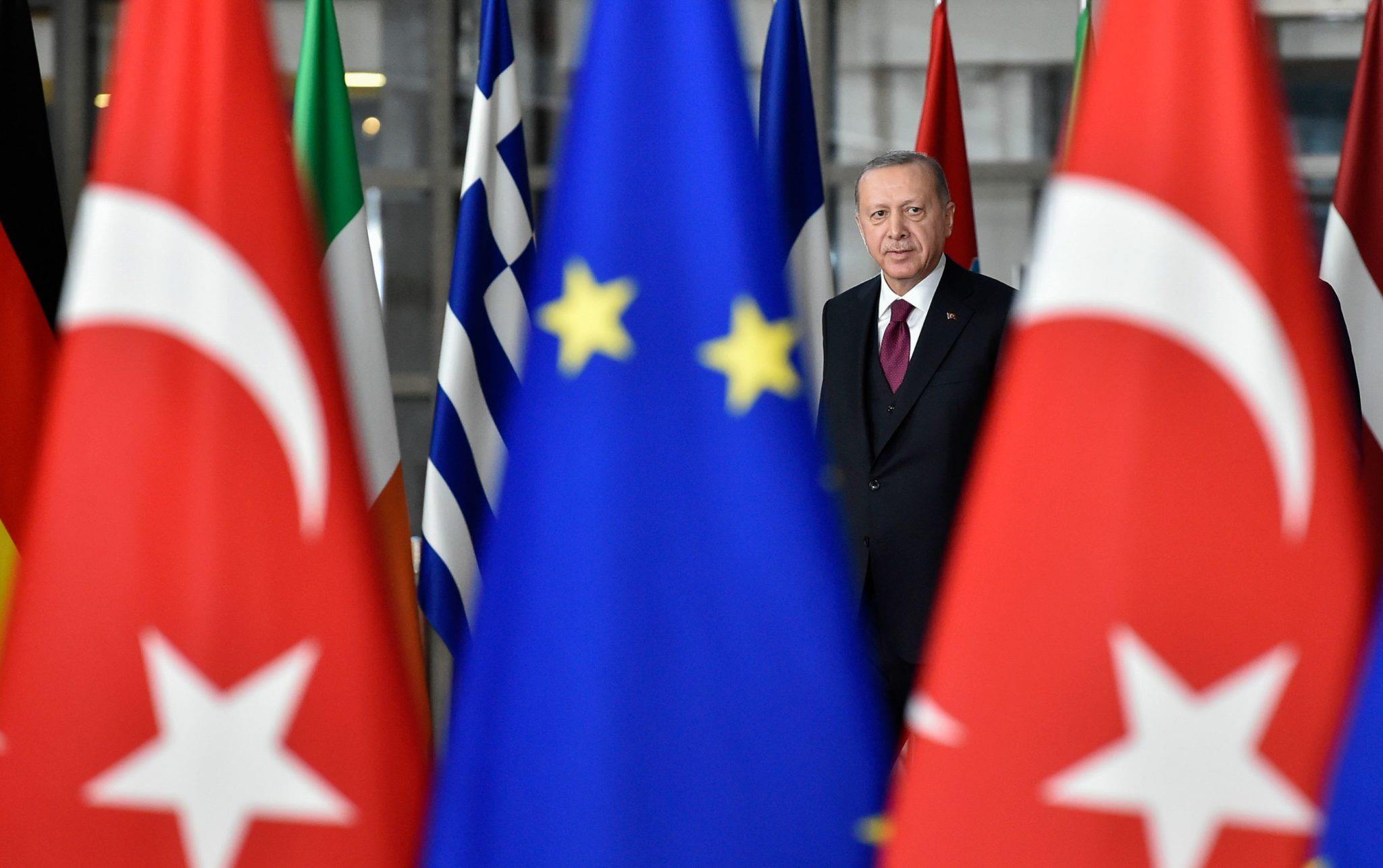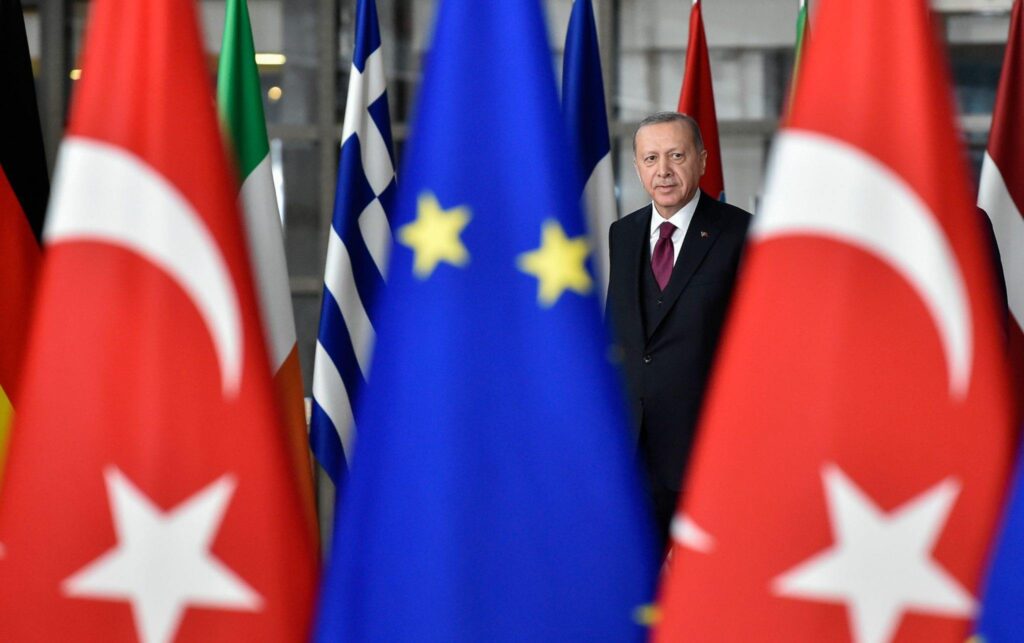Address
304 North Cardinal St.
Dorchester Center, MA 02124
Work Hours
Monday to Friday: 7AM - 7PM
Weekend: 10AM - 5PM
Address
304 North Cardinal St.
Dorchester Center, MA 02124
Work Hours
Monday to Friday: 7AM - 7PM
Weekend: 10AM - 5PM


European Council President Charles Michel and European Commission President Ursula von der Leyen are expected to fly to Turkey on April 6 to meet Turkish President Recep Tayyip Erdoğan. This may come as a surprise since relations between Turkey and the European Union seemed to have reached a new all-time low in 2020, with the two sides holding different views on hot topics ranging from the Eastern Mediterranean dispute to the Syrian and Libyan crises, and an increasingly confrontational stance between Turkey and Greece. The first months of 2021, however, have been accompanied by softer tones and a curbing of aggressive rhetoric. The European Council meeting of late March and High Representative for Foreign Affairs Josep Borrell’s report on the present and future of Turkish-EU relations may present the opening of a new chapter in the ties between Turkey and the 27. New proposals for a positive and comprehensive cooperation have been submitted but many of the main disputed issues remain unaddressed, at least for the time being, with the risk of halting the whole process.
Michel and von der Leyen will meet Turkish President Erdoğan in Ankara on April 6, in a visit aimed at increasing dialogue and cooperation after tense relations between the two sides characterised most of 2020. In the latest European Council held on March 25-26, European leaders have agreed to relaunch bilateral relations and ties with Turkey following months of constructive de-escalation attempts in the Eastern Mediterranean theatre, including the suspension of Turkish gas exploration and drilling and the resumption of consultation talks with Greece. Turkey has indeed taken a different path compared to 2020, when tensions have remained high with many of the bloc’s members. The EU has declared it is ready to resume closer dialogue and cooperation with Turkey if this “current de-escalation is sustained”. This also seems to be a positive development for NATO relations since Turkey’s Mediterranean policies have often brought it on collision course with other members of the Alliance, such as France and Greece. Some days before the EU summit, on March 22, High Representative of the Union for Foreign Affairs and Security Policy Josep Borrell has released a report on the state of EU-Turkey relations and laid out a possible agenda to foster bilateral ties. Later on the same day Borrell had a meeting with Turkish Foreign Minister Mevlüt Çavuşoğlu, who was in Brussels to participate to a NATO foreign ministers summit. Such developments, which take place on the fifth anniversary of the EU-Turkey statement signed in 2016, represent positive overtures and may pave the way to a renewal of the agreement albeit with a partially different agenda.
The report presented by Borrell identifies four main dossiers as source of tension between Turkey and the bloc, as well as sectors for positive improvements for the bilateral relations. While putting the stress on the need and benefits of cooperation, the report also presents the possibilities of “restrictive measures”, such as forthcoming sanctions later put on hold, in case Turkey will not be willing to cooperate, in what has been termed the stick and carrot approach. Starting with the common interests and benefits the two sides should work on, Borrell has named public health, climate, counter-terrorism, migration and a modernisation of the Custom Union (dating back to 1995). The last two were also two of the four pillars, together with visa liberalisation and revitalisation of the accession process, of the Turkey-EU statement of 2016, which expired in December and which both sides seem willing to renew, albeit not at the same conditions. Migration seems the most urgent matter, since the number of Syrians hosted in Turkey has risen from 2.5 millions in 2016 to almost 4 millions. The main aim of last EU-Turkey statement was to provide substantial funding to Turkey to stop the migrant flows from reaching Europe and provide protection for them in Turkey as a host country. Turkey is interested in the renewal of the deal but demands an enhanced and more efficient form, with a greater European involvement in sharing the burden, and aims to obtain not only more funding but possibly other concessions, such as visa liberalisation, and cooperation in fighting terrorism and illegal immigration. However, the bloc seems unwilling to accept such an agreement but is rather coming up with proposal for further funding, possibly through direct financial involvement of the member states. The upgrade of the European Union-Turkey Custom Union is also particularly sensitive for Turkey, since the EU is its main trading partner. Such a development would improve and modernise trade between the two sides, including sectors such as services, digital markets and agriculture, and will likely have positive effects on the distressed Turkish economy. When it comes to visa liberalisation and the continuation of Turkey’s accession process, it is very unlikely that they will materialise, at least for the moment. Although Turkish officials never tire of reminding their European counterparts of the country’s candidate status, the bloc views Turkey as a “foreign policy challenge” and, while the path of cooperation is open once again, the road to accession is long and uncertain.
Indeed, Turkish and European interests diverge on a number of regional key issues, making cooperation problematic despite positive willingness on both sides and commitment to de-escalation. The main such disputes regard Cyprus, the Eastern Mediterranean, regional conflicts in Syria and Libya, and the deterioration of the rule of law in Turkey itself. Recent developments and attempts from the Turkish side to defuse a tense situation in the Eastern Mediterranean involving Greece, Cyprus and France, as well as abandoning aggressive rhetoric towards these countries, have, however, obtained limited success. While many member states and the EU itself may see it as a gesture of goodwill and positive commitment from Turkey, others, especially the aforementioned countries, are not convinced by the new Turkish stance and press for a more hard line response from the Union. Nonetheless many EU states are firmly convinced of the need of a more cordial and deeper cooperation with Ankara, some, like Germany, Italy and Spain, for the economic links and benefits they already enjoy and want to expand, others, like the EU Balkan members, to prevent another refugee wave from reaching their borders. Turkey is realising that it cannot continue to act on its own in the regional arena. Moreover it will have to deal with the new Biden administration, which seems not inclined to compromise, pushing for a renewal of multilateralism, including within NATO. Thus, Erdoğan, who has still not received a phone call from the American president, is more than willing to mend ties with its western neighbour, in an attempt to reduce also the Turkish-American divide.
The condition of democracy, human rights and the rule of law in Turkey is still of paramount importance for the European Union, despite the adoption of a more pragmatic and flexible approach compared to the past. The situation, however, is hardly encouraging. Despite the announcement of democratic and economic reforms, Turkey has made the headlines in recent weeks because of developments in the opposite direction. On March 20, it has withdrawn from the Istanbul Convention, whose aim is to prevent and combat violence against women and domestic violence, both widespread in the country. The ruling party, which signed the convention ten years ago, has justified the move claiming that it promotes and justifies homosexuality and encourages family divisions. The move has been criticised by many international actors, including Commission President von der Leyen, Foreign Policy Representative Borrell and many EU countries. At the same time, another issue raising concerns from the 27 is the crackdown on the opposition Peoples’ Democratic Party (HDP), which has seen the jailing of many of its members and the filing of a request to shut it down.
New developments and overtures from both sides may signal an era of positive cooperation between the European Union and Turkey, particularly on migration and trade. While Turkish de-escalation attempts may lead to a more pacific situation in the Eastern Mediterranean, unaddressed disputes such as Syria, Libya and the East-Med itself, and the deterioration of the rule of law in Turkey represent serious obstacles on the path to a prolonged and constructive relationship.
Photo Credit: John Thys/AFP via Getty Images